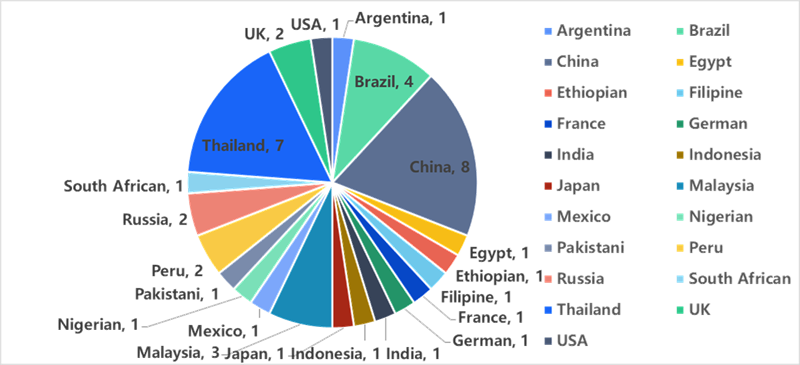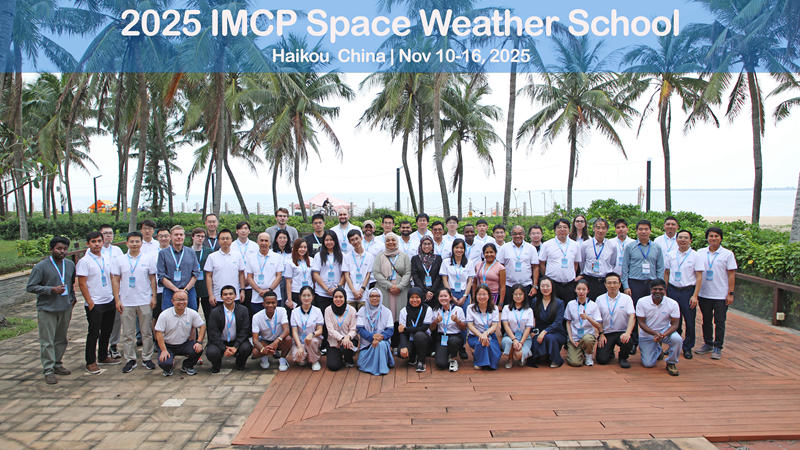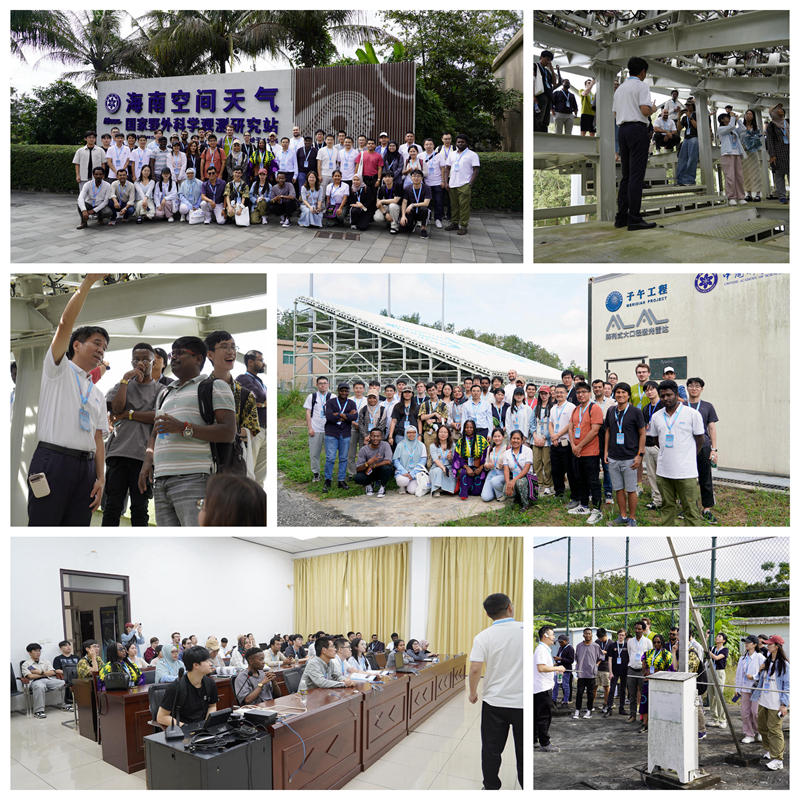The 2025 IMCP Space Weather School Successfully Concludes
Date:20 11, 2025
The 2025 International Meridian Circle Program (IMCP) Space Weather School was successfully held in Haikou, Hainan Province, from November 10 to 16, and concluded on November 16. Prof. Chi Wang, Director of the National Space Science Center of the Chinese Academy of Sciences; Prof. Qingming Luo, President of Hainan University; Professor Lei Jiuhou from the University of Science and Technology of China; Director Yiqi Jiang from the Bureau of International Cooperation of the Chinese Academy of Sciences; and Professor Juha Vierinen from the Arctic University of Norway attended the meeting and delivered speeches.
The event was co-hosted by the National Space Science Center of the Chinese Academy of Sciences (National Space Science Center, CAS) and the Asia-Oceania Space Weather Alliance (AOSWA, Asia-Oceania Space Weather Alliance), with support and funding from the Chinese Academy of Sciences' President's International Fellowship Initiative (PIFI), the Scientific Committee on Solar-Terrestrial Physics (SCOSTEP), and the Institute for Space-Earth Environmental Research at Nagoya University, Japan (ISEE, Institute for Space-Earth Environmental Research, Nagoya University).
This school featured approximately 70 participants, including faculty and students from 24 countries, with 42 students from 21 countries such as Peru, Malaysia, Brazil, Russia, Argentina, and Thailand. The teaching team consisted of 14 experts in space weather and space physics from home and abroad, including 5 international lecturers: Professor Joaquim Eduardo Rezende Costa from Brazil's National Institute for Space Research (INPE), Associate Professor Yuichi Otsuka from Japan's Nagoya University, Professor Juha Vierinen from Norway's Arctic University (UiT), Professor Jayachandran P. Thayyil from Canada's University of New Brunswick, and Professor Michael Kosch from South Africa's National Space Agency (SANSA), as well as 9 experts from various research institutions and universities in China.
The theme of this school was Detection and Research of Solar-Terrestrial Space Weather Based on the IMCP, aiming to foster young scholars understanding of the full-chain physical processes of space weather in related fields through systematic courses and field investigations, while promoting international exchange and cooperation in the IMCP.
In terms of course design, in addition to instructor lectures, field investigations and hands-on analysis and operation homework were included. The homework was completed in groups by students with ample time allocated for Q&A and interactive sessions. Finally, the school's scientific committee selected 3 outstanding groups based on their homework presentations and awarded them the Outstanding Student Award.
At the closing ceremony, Prof.Qingming Luo, representing Hainan University—the initiating unit of the "Tropical Universities Alliance"—and Prof. Chi Wang from the National Space Science Center of the Chinese Academy of Sciences jointly signed a cooperation agreement for the International Meridian Circle Big Science Program, further strengthening bilateral efforts in detection capability building, scientific research, and talent cultivation in equatorial and low-latitude regions. At the same time, Prof Wang Chi also signed a related cooperation agreement with Professor Juha Vierinen from Norway's Arctic University (UiT), advancing the collaborative development of the IMCP on a global scale.
The IMCP was proposed and led by Chinese scientists, with the national major scientific and technological infrastructure—the Chinese Meridian Project—as its foundation and core. It unites more than a thousand instruments from over ten countries or regions along the 120°E and 60°W meridians to form a global distributed ground-based detection network, conducting full-latitude, full-time scanning observations of solar-terrestrial space. This program studies the global characteristics and propagation laws of space weather, as well as its interactions with global changes, providing a scientific basis for addressing Earth disasters and peaceful utilization of space, and contributing Chinese strength to building a habitable Earth and achieving sustainable human development.
The successful hosting of this school has further strengthened academic and technical exchanges between China and cooperating countries, especially those in equatorial and low-latitude regions, in the field of space weather ground-based monitoring.

42 students from 21 countries

Group Photo


Signing Ceremony
